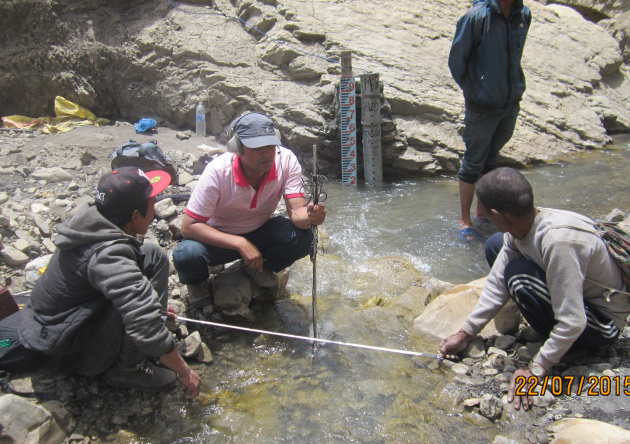Topics: Impacts and adaptation
Type: Briefing paper
Publication date: March 2017
Download
Summary
Authors: Dr Bhopal Pandeya & Dr Wouter Buytaert
 This briefing outlines how involving local communities in monitoring water and land resources – so-called citizen science – can create new data and knowledge, improve conventional decision making and optimise water resource benefits.
This briefing outlines how involving local communities in monitoring water and land resources – so-called citizen science – can create new data and knowledge, improve conventional decision making and optimise water resource benefits.
The headlines
- The use of low-cost hydrological sensors in Nepal allowed local stakeholders to generate useful data on freshwater resources in partnership with scientists, and to apply this data more effectively in participatory decision making.
- It is important to use the right mapping and modelling methods for ecosystem services (the benefits people obtain from ecosystems) so that information on service production, distribution and consumption is expressed at a spatial scale that is relevant to decision making. These methods are even more important in regions where limited data is available.
- The integration of appropriate citizen science practices as well as mapping and modelling tools into water and land resources based decision making could facilitate sustainable development activities, particularly in the Himalayan region.
Download now: Citizen science and web-based modelling tools for managing freshwater - BN 4 [pdf]
View publications by:
Topic
Climate Science
Earth and Life Sciences
Energy and Low-Carbon Futures
Resources and Pollution
Economics and Finance
Health
View all publications and browse by year
Publication type
Briefing papers and Briefing notes
Grantham Institute Outlooks
Evidence & submission papers
Infographics
Institute reports and analytics notes
Grantham notes
Collaborative publications
Discussion papers
Institute event overviews
Working papers